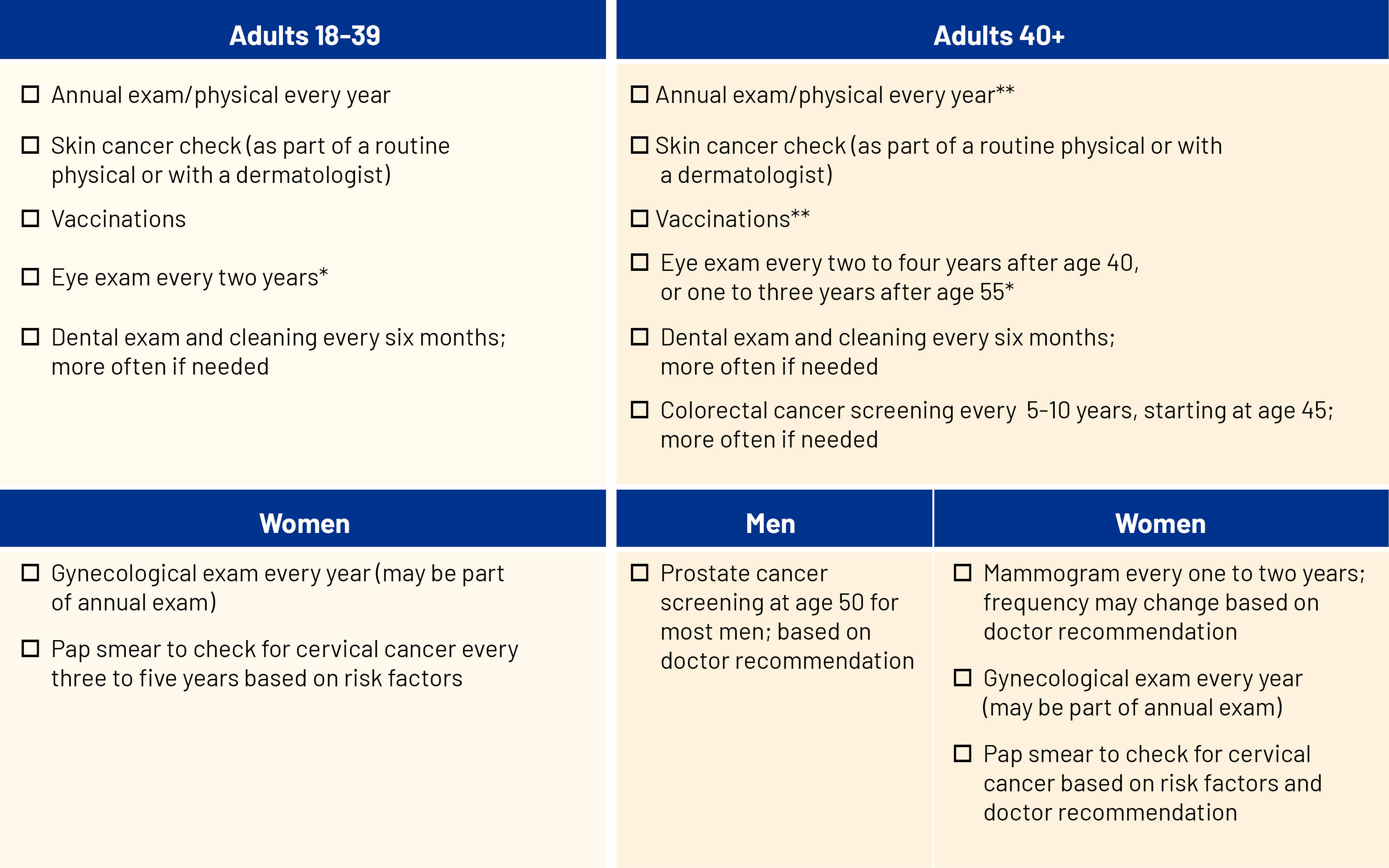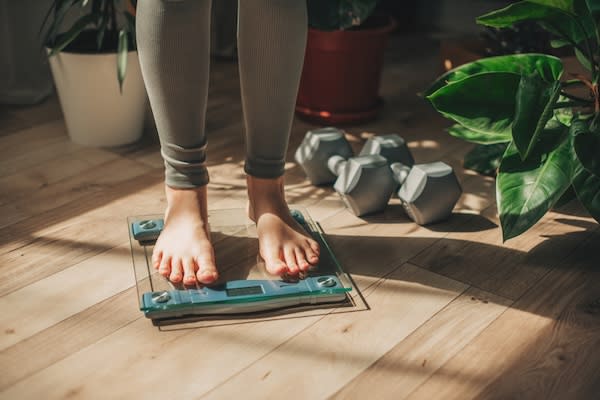Your year-end guide to health and well-being

[4.5 MIN READ]
In this article:
-
The end of the year is a great time to take stock of where you are, health-wise.
-
Read a variety tips to help you manage the stress of the season and sustain your well-being through the end of the year and beyond.
-
Download this helpful chart to stay on top of annual and routine health screenings.
As we enter 2024’s final stretch, it’s a great time to take stock of where you are, health-wise.
Yes, the holiday season is busy. But in the midst of the festivities and gift-giving, give yourself a gift, too. The guide below has tips to help you manage the stress of the season and sustain your well-being through the final weeks of the year, into 2025, and beyond.
Don’t worry about adopting all these practices at once. Just choose a few things that make the most sense to you and take one step at a time. Healthy Holidays!
Nurture your mental health
- Practice mindfulness and meditation: Practicing mindfulness can help you stay present in the moment and reduce stress. Meditation can calm your mind and body.
- Journal: Regularly expressing gratitude for the positive aspects of your life can shift your focus and improve your mood.
- Limit social media: Excessive social media use may contribute to feelings of comparison and inadequacy. If this happens for you, set boundaries and limit your screen time.
- Seek support: If you’re feeling overwhelmed, reach out to friends, family or a mental health professional.
Prioritize physical health
- Prioritize sleep: Aim for 7-9 hours of quality sleep each night. Get into a regular sleep routine to improve your sleep quality.
- Eat healthy food: Fuel your body with nutritious foods. Avoid excessive sugar and processed foods. Focus on whole grains, fruits, vegetables and lean proteins.
- Get regular exercise: Engage in physical activity that you enjoy. Exercise can boost your mood, reduce stress, and improve your overall health.
- Take breaks: Schedule breaks throughout the day to relax and recharge. Step away from your work or social obligations to avoid burnout.
- Wash your hands: After using the bathroom and before eating. Sing "Happy Birthday" twice and you'll have scrubbed long enough.
- Get a flu shot every year.
- Don’t smoke or use tobacco: Need a boost in quitting? Ask your doctor about products or programs that can help.
- See your doctor: Prioritize annual appointments with your health provider, as well as annual screenings. See the chart below for a checklist of important screenings recommended for adults.
- Pro tip: The end of the year (that’s now!) is a great time to set up annual medical appointments, or, make it a habit to schedule every year on your birthday.

*If you have glaucoma risk factors, you may need to have more frequent eye exams. If you have diabetes, you should have an eye exam every year, no matter your age.
**As you get older, your doctor may recommend additional or more frequent screenings and vaccinations.
What happens at an annual exam/physical?
Based on your age, risk factors and doctor recommendations, you may get (or be sent to another provider to get) any or all of these tests and screenings, along with others to address your specific health situation.
- Discussion about any health changes or issues since your last exam
- Blood pressure check
- Cholesterol screening
- Diabetes screening
- Vaccinations
- Safety, depression, alcohol and tobacco use screening
- Lung cancer screening (after age 55 with lifestyle/risk factors)
- Bone density screening (after 50 with risk factors)
- Colorectal cancer screening (every 5-10 years starting at 45, based on doctor recommendation)
Manage stress
- Practice deep breathing: Deep breathing techniques can calm your nervous system.
- Try yoga and tai chi: These mind-body practices can improve flexibility, reduce stress and promote relaxation.
- Engage in hobbies and interests: Take time for activities you enjoy.
- Manage your time: Effective time management can help you feel more in control and reduce stress.
Practice self-care
- Set and keep boundaries: Learn to say "no" to commitments that are overwhelming or draining.
- Take time for yourself: Schedule time for activities that you find relaxing and enjoyable.
- Practice self-compassion: Be kind to yourself and avoid self-criticism.
- Connect with nature: Spending time outdoors can have a calming and restorative effect.
Seek community and connection
- Volunteer: Giving back to your community can provide a sense of purpose and fulfillment. It can also help you connect with others and reduce stress.
- Join a group or club: Participating in group activities can provide social support and a sense of belonging.
- Get Involved in local events: Attend gatherings and festivals to meet new people and feel more connected.
Need help finding free activities in your community? Here are some tips:
-
Check your local library: Libraries often offer a variety of programs and events, such as book clubs, movie screenings and children's activities.
-
Visit your city's website: Many cities have websites that list concerts, festivals and sporting events.
-
Check out your local community center: Community centers often offer programs and activities, fitness classes, art workshops and after-school programs.
-
Search online: Many websites offer free events and activities. Popular options include Meetup, Eventbrite and Google Events.



